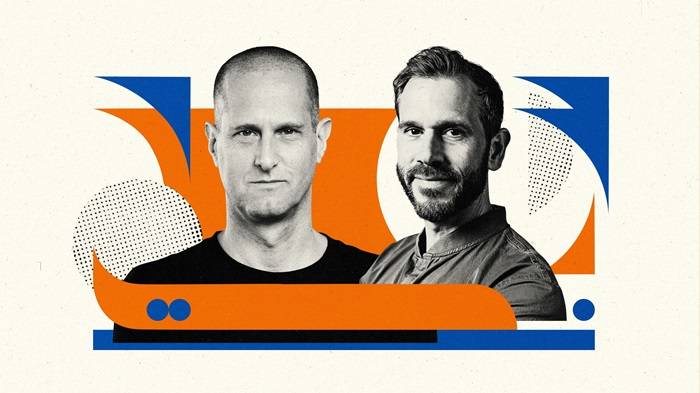In the ever-evolving landscape of technology, two titles often intermingle: software engineer and software developer. While both roles are crucial in the creation and maintenance of software systems, they possess distinct responsibilities, skill sets, and career paths. Understanding the nuances between these roles is essential for individuals considering a career in software engineering or development. In this comprehensive guide, we delve deep into the differences, similarities, and career prospects of software engineers and developers.
Defining Software Engineering and Software Development:
- Software Engineering:
- Software engineering focuses on the systematic application of engineering approaches to the design, development, maintenance, and testing of software systems.
- It emphasizes the use of engineering principles to create scalable, reliable, and efficient software solutions.
- Software engineers typically work on large-scale projects and collaborate with cross-functional teams to meet project requirements and deadlines.
- Software Development:
- Software development involves the process of conceiving, specifying, designing, programming, documenting, testing, and bug fixing involved in creating and maintaining applications, frameworks, or other software components.
- It encompasses a broader spectrum of activities compared to software engineering, including frontend development, backend development, and full-stack development.
- Software developers often work closely with stakeholders to understand user requirements and translate them into functional software solutions.
Key Differences Between Software Engineers and Developers:

- Educational Background:
- Software engineers typically hold a degree in computer science, software engineering, or a related field. They often have a strong foundation in mathematics, algorithms, and computer architecture.
- Software developers may have diverse educational backgrounds, ranging from computer science to information technology. While a formal education is beneficial, many developers acquire skills through self-study and practical experience.
- Focus and Scope:
- Software engineers focus on the overall design and architecture of software systems. They are involved in the entire software development lifecycle, from requirements gathering to deployment.
- Software developers tend to concentrate on coding and implementing specific features or functionalities based on the requirements provided by software engineers or project managers.
- Problem-Solving Approach:
- Software engineers employ a systematic and analytical approach to problem-solving. They emphasize scalability, performance, and maintainability when designing software solutions.
- Software developers often tackle immediate challenges and prioritize functionality over long-term architectural considerations. Their problem-solving approach may be more iterative and agile.
Roles and Responsibilities:
- Software Engineer Responsibilities:
- Designing and implementing software architecture.
- Writing clean, efficient, and maintainable code.
- Conducting code reviews and providing constructive feedback.
- Collaborating with cross-functional teams, including product managers, designers, and quality assurance engineers.
- Optimizing software performance and scalability.
- Documenting technical specifications and architectural designs.
- Software Developer Responsibilities:
- Writing code to implement specific features or functionalities.
- Debugging and troubleshooting issues in existing software applications.
- Collaborating with designers to create user interfaces.
- Participating in agile ceremonies such as sprint planning and daily standups.
- Adhering to coding standards and best practices.
- Contributing to the continuous improvement of development processes and methodologies.
Career Trajectories and Growth Opportunities:
- Software Engineer Career Path:
- Entry-level positions: Junior Software Engineer, Associate Software Engineer.
- Mid-level positions: Software Engineer, Senior Software Engineer.
- Advanced positions: Lead Software Engineer, Principal Software Engineer.
- Leadership roles: Engineering Manager, Director of Engineering.
- Specializations: DevOps Engineer, Solutions Architect, Technical Architect.
- Software Developer Career Path:
- Entry-level positions: Junior Developer, Associate Developer.
- Mid-level positions: Software Developer, Senior Developer.
- Advanced positions: Lead Developer, Principal Developer.
- Leadership roles: Development Manager, Director of Development.
- Specializations: Frontend Developer, Backend Developer, Full-stack Developer.
Skills and Competencies:
- Software Engineer Skills:
- Proficiency in programming languages such as Java, Python, C++, or JavaScript.
- Strong understanding of data structures and algorithms.
- Knowledge of software development methodologies like Agile or Scrum.
- Experience with version control systems such as Git.
- Familiarity with cloud computing platforms like AWS or Azure.
- Excellent problem-solving and analytical skills.
- Software Developer Skills:
- Proficiency in programming languages relevant to their specialization (e.g., JavaScript for frontend developers, Python for backend developers).
- Knowledge of web development frameworks such as React, Angular, or Django.
- Understanding of user experience (UX) and user interface (UI) design principles.
- Ability to work with databases and SQL.
- Familiarity with testing frameworks and methodologies.
- Strong communication and collaboration skills.
Salary and Compensation:
- Software Engineer Salary:
- According to the U.S. Bureau of Labor Statistics, the median annual wage for software developers was $110,140 in May 2020.
- Senior software engineers and those in specialized roles can command higher salaries, with some earning six-figure incomes.
- Software Developer Salary:
- The salary range for software developers varies depending on factors such as experience, location, and industry.
- Entry-level developers may start with salaries ranging from $60,000 to $80,000 per year, while senior developers in high-demand areas can earn upwards of $150,000 annually.
In conclusion, while the terms “software engineer” and “software developer” are often used interchangeably, they represent distinct roles within the realm of software development. Software engineers focus on the design, architecture, and scalability of software systems, while software developers concentrate on coding and implementing specific features. Both roles are integral to the software development lifecycle, and individuals pursuing a career in this field should carefully consider their interests, skills, and career aspirations when choosing between software engineering and development. By understanding the differences and similarities between these roles, aspiring professionals can make informed decisions to chart a successful career path in the dynamic world of technology.


